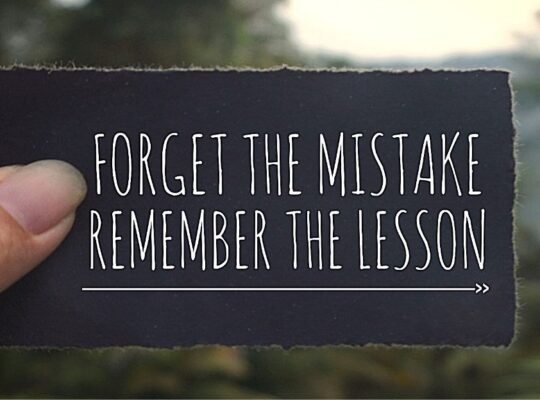Every November, Americans gather with their families in a day of thanksgiving. It’s nice, right? Enjoying a day of thanks is wonderful, but you don’t have to wait all year to do so. You can be thankful all-year-round.
There is power in gratitude, there are benefits of gratitude. It might just be the most overlooked weapon in your arsenal. It doesn’t cost money to cultivate gratitude. It doesn’t take a lot of time to cultivate gratitude.
However, the benefits are incredible – so incredible, we’ve compiled 50 to get you started.
50 Power Benefits of Gratitude
1| Gratitude Makes You Happier
According to a study published in Clinical Psychology Review (Wood, A. M., et al., Gratitude and well-being: A review and theoretical integration, Clinical Psychology Review (*), spending five minutes daily writing in a gratitude journal can boost your happiness long-term. So, by taking notice of what you have it will make you feel more positive about life in general…it makes perfect sense! If you want to feel positive about life, if you want to be happier, then you need to show gratitude.
2| Gratitude Increases Psychological Well-Being
Your self-esteem and well-being are important facets of your whole self. Gratitude can help you built both facets, therefore, having a positive impact on your psychological well-being. You can reap the benefits of gratitude by living gratitude.
How can you live a life of gratitude? By committing yourself to gratitude and practicing it regularly. It really is as simple as that. The simplest way to live a life of gratitude is by keeping a journal and writing in it daily about what you’re grateful for – in general or from your day.
3| Gratitude Increases Positive Emotions
If you want to increase your positive emotions, then you have to act to do so! How? By practicing gratitude. By feeling grateful you are keeping envy at bay. Gratitude makes you more positive, it makes you more resilient.
Think about it – if you’re paying attention to all the incredible things in your life, how would there be any room for jealousy or envy? There’s just no room for any of it if you’re grateful for what you have now.
4| Gratitude Increases Self-Esteem
According to a four-week experiment on gratitude (Gratitude & Well-Being: Who Benefits the Most from a Gratitude Intervention? Rash, et al *), practicing gratitude can increase your self-esteem. It helps you feel better about yourself because it helps you feel more positive about your circumstances.
The experiment found that the group who practice gratitude contemplation during the four-weeks felt more satisfied with life than the control group and had a higher level of self-esteem.
5| Gratitude Keeps Depression At Bay
According to a fascinating study published by the American Psychological Association (Krysinska, K., Lester, D., Lyke, J., & Corveleyn, J. (2015). Trait gratitude and suicidal ideation and behavior: An exploratory study. Crisis: The Journal of Crisis Intervention and Suicide Prevention, 36(4), 291–296. *), gratitude can help keep depression at bay.
Gratitude serves as a protective factor when it comes to coping, depression, and suicide. By enhancing your sense of gratitude, you are increasing your sense of protection when you are at your weakest points in life.
6| Gratitude Increases Social Ties
Grateful people have access to a much wider network of people. They have a bigger social network, they have more friends, and their relationships are better. Why? Well, gratitude changes how people perceive you. If you’re a grateful person, then others will recognize you as being appreciative, social, and trustworthy. Think about it – what type of people do you enjoy being around? Would you prefer to spend time with someone who constantly complains about everything in their life? Or, would you rather hang out with a person who can find the positive in a negative and appreciates what they have? It’s not even a contest, is it?
7| Gratitude Improves Romantic Ties
It makes sense that if gratitude increases social ties that it would also influence your romantic relationships. Of course, this is a bit different. You can boost the quality of your romantic relationships by showing gratitude to your partner as well as being a grateful person in general.
When you show gratitude to people you love it makes you feel good because it makes them feel good, which is going to provide the relationship with a healthy boost.
8| Gratitude Improves Friendships
Of course, this follows from the theme of the last two points. Gratitude improves friendships. When you communicate your gratitude to your friends and for your friends, it makes working through issues much easier.
Breakups with friends are just as painful as romantic breakups. Any situation where two people are involved will run into problems. There’s nothing worse than building a beautiful friendship only for it to all fall down over a misunderstanding or a mistake.
Gratitude helps you focus on the positives of the friendship and deal with issues appropriately. Gratitude makes you a more positive person which means you tend to have positive perceptions of your friends in general. It makes the friendship worth saving.
9| Gratitude Increases Social Support
Considering the benefits of gratitude, we have discussed, it would make sense that it boosts your social support. Grateful people can access a wider set of social support. Of course, the fact that gratitude has boosted your self-esteem and left you feeling less depressed and less stressed means you don’t need as much social support in the first place. However, when you need it you can turn to it for help getting through the most difficult times.
10| Gratitude Increases Family Ties
Gratitude provides a buffer between children and parents. Wait, what? Yes, according to studies (Stoeckel, M., Weissbrod, C., & Ahrens, A. (2015). The adolescent response to parental illness: The influence of dispositional gratitude.
Journal of Child and Family Studies, 24(5), 1501–1509. *), gratitude can protect children from the symptoms of parents with anxiety and depression experience.
When children can find the positives, they can easily cope with the challenging situations they face due to an illness within the nuclear family. So, gratitude isn’t just beneficial to you as an adult, it’s something that you should encourage in children as well.
11| Gratitude Makes You Optimistic
Showing gratitude makes you think more positively, and it helps others to think and feel more positively, too. It boosts your optimism because the more time you spend thinking about what you’re grateful for, the more you realize you have to be grateful for.
12| Gratitude Increases Spirituality
Whether you’re religious or not, spirituality is an important aspect of the human condition. As you increase your gratitude, you positively contribute to your spirituality (and vice versa).
13| Gratitude Increases Giving
One major benefit of gratitude is that it increases your giving attitude. Why? There is a range of reasons, but perhaps the biggest is that in your gratitude you decrease your selfishness. By promoting gratitude, you are more likely to share because you are aware of just how much you have. You can give at the expense of yourself.
14| Gratitude Decreases Materialism
Perhaps the natural next benefit from number 13, gratitude decreases your material side. You appreciate what you have so, you become less likely to obsess over obtaining more stuff.
This shouldn’t be a surprising benefit of gratitude based on what we have learned thus far. Therefore, this tidbit shouldn’t shock you either – the more grateful you are, and the less materialistic you are… the more satisfied you will be with the life you build.
15| Gratitude Increases Optimism
With all that in mind is it any wonder that gratitude increases optimism? It positively influences your level of optimism. It doesn’t just make you a more optimistic person, it shifts you from pessimism to optimism. When you get a handle on your gratitude you can easily tell others that you’re an optimist. Gratitude expands your capacity for optimism and happiness.
16| Gratitude Makes You An Effective Manager
It might seem like something gratitude shouldn’t influence and yet, gratitude improves your managerial skills. It actually makes perfect sense when you consider that grateful people issue genuine compliments often and with ease.
You take notice of the people who make things work, you give them praise, build them up, and motivate them in a way that most managers don’t. Even if you’re not a manager or in a management position, you can have that impact on others.
17| Gratitude Increases Patience
When you are grateful for others, you’re less likely to experience impatience. You know how difficult situations can increase stress and how stress impacts people and you are patient as a result of that.
18| Gratitude Improves Decision-Making
Moreover, that patience that you increase through gratitude helps you facilitate better decision-making skills. When you have patience, you make space for making smart decisions.
That increase in your patience reduces pressure from yourself and others and lessens the need for short-term gratification, allowing for everyone to cope with stress and find real solutions to problems.
19| Gratitude Increases Purpose
When you are grateful, you find it easier to find purpose or meaning in the word that you do. You may look back at your life and wish you could go back and make different decisions.
However, as you increase your gratitude you begin to look at your current situation through positive lenses which allows you to feel more fulfilled because you can identify purpose and meaning easily. When you recognize your strengths, you can find ways to leverage that in your career. We all have a purpose; we all want to pursue our passions and live a calling – gratitude helps you find that in what you have now. It’s powerful.
20| Gratitude Reduces Turnover
If you are a manager or business owner, then labor turnover is likely something you think about often. Well, if those numbers matter to you, then you will be delighted to know that gratitude can reduce labor turnover.
When people feel respected and valued, they are more likely to feel embedded in a company. This is important in the early days of employment. A warm welcome means people are less likely to stick around, and they will feel respected by experienced peers. Creating an environment of gratitude that stems from your personal sense of gratitude will create a positive workplace where people want to be.
21| Gratitude Reduces Stress & Mental Health Issues Related To Work
Gratitude in the workplace can significantly impact mental health and stress levels. According to a study from the Hong Kong Institute of Education (on Improving Mental Health in Health Care Practitioners, Lam, et al, *), gratitude reduces stress and improves depressive symptoms.
The participants in the study who were assigned to a gratitude group experienced fewer symptoms related to stress and mental health issues. They were able to find things to be grateful for, even in a stressful workplace. Thus, gratitude offers protection from the negative side effects that come from a stressful job.
While not every workplace is as stressful as a hospital, stress at work is the norm in the modern world. Gratitude, therefore, has an important role to play in all workplaces.
22| Gratitude Reduces Symptoms of Depression
There are a variety of ways to practice gratitude. However, a gratitude journal is one of the most popular (and effective) options. By keeping a regular journal, you fight symptoms of depression.
As you journal your gratitude daily, you shift your focus to all of the positives that life has brought. It serves as a distraction from symptoms of depression and fights to increase your positivity and well-being.
23| Gratitude Reduces Blood Pressure
The news on gratitude isn’t new information. Researchers have been looking into the benefits of gratitude for decades. In fact, one such study from 1977, looked into how gratitude influences the physical being (Shipon, R. W. (2007). Gratitude: Effect on perspectives and blood pressure of inner-city African- American hypertensive patients. Dissertation Abstracts International: Section B: The Sciences and Engineering, 68(3-B), 1977, *). The study found that hypertension patients who focused on their blessings once a week experienced a decrease in their blood pressure, which had a positive influence on their overall health.
24| Gratitude Improves Your Sleep Pattern
Considering the influence gratitude has on your blood pressure, as well as all of the other benefits, it makes sense that it could also improve your sleep pattern. Often, people dealing with symptoms of depression and stress, struggle to get to sleep at night. It’s a vicious cycle with each issue feeding the other. Make a change by writing in your gratitude journal before bed.
25| Gratitude Increases Likelihood To Exercise
This might be the most unexpected benefit of gratitude. It can help you get in shape! It’s less about weight loss and more about exercising. People who have high levels of gratitude are just more likely to exercise than others.
This is based on a joint study from the University of California, Davis, and the University of Miami (*). The researchers found that the group who regularly practiced gratitude for a period of 11 weeks were more likely to exercise than the control group. Get journalling!
26| Gratitude Improves Physical Health
As you become someone who is more likely to exercise, lives with less stress, and more optimism, it makes sense that you would be in better physical health. The more grateful you are, the happier and healthier you will be.
27| Gratitude Increases Psychological Health
Gratitude decreases toxic emotions, whether it’s envy and regret or resentment or frustration. There is a strong link between gratitude and happiness, and happiness leads to greater psychological health.
28| Gratitude Facilitates Depression Recovery
In 2015, one case study looked at how a woman with depression could facilitate her recovery by adopting the practices and teaching of Buddhism (*). The most important tool she was to utilize was gratitude. This was the tool that helped facilitate her recovery from depression. While it’s a single case study, it’s certainly interesting that gratitude could have such a powerful impact on someone practicing it throughout her depression.
29| Gratitude Helps Substance Abuse Recovery
Often, when dealing with stress and mental health issues, people turn to substances to relieve their symptoms. It’s an easy fix that provides temporary relief. The problem is the relief is only temporary and the consequences are great.
What gratitude can do for people struggling with substance abuse issues is to help them utilize their strengths to live a healthier life. As we can see from the long list of benefits above, gratitude makes people stronger, more resilient, happier, and someone with that mindset will respond well to recovery from substance issues. It’s a long process, there will be setbacks, it’s all about bouncing back.
30| Gratitude Improves Recovery From Heart Events
According to a Harvard Medical School study in conjunction with the Massachusetts General Hospital, gratitude helped patients recover from acute coronary syndrome (*).
Patients who approached their recovery with gratitude experienced an increase in quality of life, as well as a reduction in symptoms of anxiety and depression.
31| Gratitude Increases Empathy
People who practice gratitude are kinder, even when others don’t treat them as such. Gratitude brings out the empathetic side of people. It might be down to the optimistic spirit that gratitude contributes to.
32| Gratitude Reduces Aggression
This kind of piggybacks on the last point in that, when someone is unkind, a grateful person is less likely to retaliate in anger. They are more sensitive and due to the increase in empathy, they are far less likely to seek revenge for a perceived slight.
33| Gratitude Boosts Mental Strength
Gratitude isn’t just for fighting stress as a means to boost mental strength. It has an important role to play in overcoming trauma. A study from the Psychology Department at George Mason University in Virginia found that veterans of the Vietnam War with high levels of gratitude experiences weren’t as effected by PTSD (*). When you can recognize everything, you should be grateful for, even in the most difficult times of life, it boosts your mental strength.
34| Gratitude Increases Resilience
On that note, gratitude also increases resilience. Everyone experiences downtimes. We are all prone to loneliness, stress, anxiety, and depression. None of us are immune to it. By practicing gratitude, you aren’t going to suddenly be immune to those feelings or situations.
They’re a natural part of the human experience. However, when you do practice gratitude you increase your ability to bounce back from negative emotions. The mood swing, the dip, it doesn’t last as long. You are able to cope, you know when to seek support, and you build resilience through gratitude.
35| Gratitude Makes You Feel Good
Humans like to do things that make them feel good, but do you know what makes you feel good? Gratitude! Gratitude is basically happiness, it’s just that you don’t recognize it until later. Gratitude isn’t making you happy, it’s just the process of recognizing your already existing happiness. It feels good. Of course, it does, it’s making you more successful, it’s making you healthier, and it’s making you stronger.
36| Gratitude Makes For Happy Memories
Have you seen the movie Inside Out? It’s an incredible journey through the complicated emotions of a child. There are a lot of lessons in it for adults, too. The way we allow our emotions to touch our memories and how each emotion has a role to play in our lives.
Your mind is stacked with memories and those memories aren’t set in stone. Our memories often change as we grow and change, often seeing things differently. You can look back on a memory and think of it being much worse than it really was. You can look at a situation and remember it being crueler or kinder or longer or shorter or more interesting than it was.
What does this have to do with gratitude?
Gratitude allows you to look back on those memories in a more positive light. Gratitude can transform negative or neutral memories and change them into positive ones. Getting yourself into a grateful place can help you find closure on negative memories. If you look back on a memory you recall as being negative, you can change the story by finding positive aspects of it and focusing on those.
37| Gratitude Beats Envy
When you feel a small pang of jealousy and it’s aimed at the right target, it can motivate you. Envy can spur you into taking action. It can encourage you to work harder and to achieve your goals.
However, that’s when you’re dealing with a small pang. Too much jealousy or envy elicits feelings of inferiority, unhappiness, insecurity, distrust, or materialism. So, how can gratitude help you beat envy? The two traits share very little in common. When you experience more gratitude, then you are less likely to experience envy. It’s difficult for envy to abide when gratitude is present.
By increasing your gratitude by practicing it regularly, you are essentially squeezing envy out. The two are incompatible, just like it’s impossible to be optimistic while also being pessimistic. While envy spells inadequacy, gratitude spells benevolence. The two cannot abide together.
38| Gratitude Facilitates Relaxation
As a positive emotion, gratitude facilitates relaxation. If you find yourself having a difficult time getting to sleep, try counting your blessing as you try to nod off.
39| Gratitude Makes You Friendly
Gratitude makes you a friendlier person because you are more empathetic. You are more capable of perceiving kindness, thus more likely to reciprocate it. It makes you more energetic, it makes you happier, all of which contributes to pro- social behavior.
40| Gratitude Increases Attractiveness
Is there anything less attractive than watching someone throw a tantrum because they are spoiled rotten? Well, on the opposite side of the coin, gratitude increases attractiveness.
41| Gratitude Boosts Network Skills
Due to the magic of gratitude and pro-social behavior, gratitude helps you boost your network skills. It’s good for your social life and for your career.
42| Gratitude Increases Achievement
With gratitude, you are more likely to achieve the goals you set out.
43| Gratitude Increases Productivity
A natural byproduct of being someone who achieves goals is that it makes you a more productive person. Gratitude reduces worry which means you can funnel more of your energy into doing rather than worrying.
44| Gratitude Decreases Pain
In a 2003 study, researchers found that 10% of participants were able to reduce their pain levels by practicing gratitude (*).
45| Gratitude Boosts Energy
Gratitude can make you a more energetic person. Perhaps this explains why you’re more likely to exercise!
46| Gratitude Increases Understanding
If you regularly practice gratitude you will have more gray matter in the right lobe of your brain. This is the part of your brain that processes emotions and the increase in gray matter increases your understanding of others. You are more capable of interpreting the intentions of others (*). Gratitude is connected to our ability to understand each other.
47| Gratitude Boosts Self-Care
As a grateful person, you recognize the importance of your overall well-being which makes you more likely to practice self-care.
48| Gratitude Makes Altruism Rewarding
The more grateful you are, the more willing you become to give and the more rewarding it becomes.
49| Gratitude Grows Over Time
The more you practice gratitude, the greater the rewards over time. Why not start your gratitude journal today and see how your life improves?
50| Gratitude Breeds Awareness
A person who focuses on the negative would struggle with dealing with tight finances. A person who focuses on the positive will feel grateful for what they do have – from the pillow where they lay their head to the food on their dinner plate.
The point is, practicing gratitude breeds awareness. You become more aware of the incredible things life has to offer. You lead an abundant life, you just have to pay attention to that fact.







